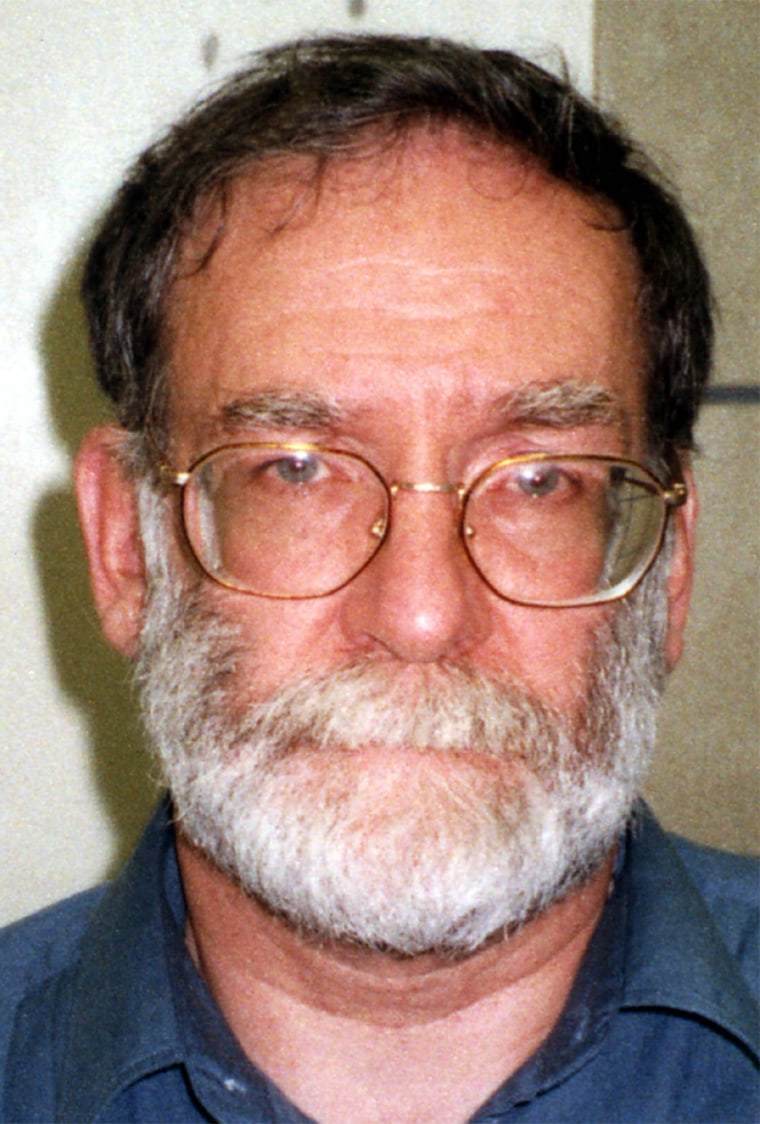Britain’s worst mass murderer, Harold Shipman — a family doctor who killed hundreds of his patients — was found hanging dead in his cell on Tuesday, the prison service said.
Shipman, nicknamed “Dr Death” after his horrific killing spree came to light, was convicted in 2000 of murdering 15 of his patients and sentenced to life in prison.
An inquiry later ruled he had murdered at least 215 of his patients with heroin injections, making him Britain’s — and one of the world’s — most prolific serial killer.
“He was found dead, hanging in his cell,” a prison service spokesman told Reuters. “Doctors have confirmed his death.”
Shipman killed his patients, one by one, over a more than 20-year period from 1975 to 1998. Of his victims, 171 were female and 44 male. The oldest victim was a 93-year-old woman and the youngest a man of 41.
A statement from Wakefield prison, where Shipman had been held, said he was found at 6:20 a.m. (1:20 a.m. ET) on Tuesday, the day before his 58th birthday. “Despite the best efforts of staff who immediately attempted resuscitation, he was pronounced dead by a doctor at 8:10 a.m.,” it said.
The official inquiry into the murders found that Shipman had murdered his victims quietly, coldly and systematically, ending the life of patient after patient in a betrayal of trust “unparalleled in history.”
His motives remain a mystery and he had consistently refused to confess to any of them.
Shipman’s conviction sparked horror among Britons at how a doctor who had previous convictions for forging prescriptions to feed his own drug addiction was able to continue his career and run a one-man practice.
'Calculated and cold-blooded perversion'
Working alone, he was able to stockpile huge amounts of diamorphine — the medical name for heroin — at his home and surgery, ready to use on his often elderly victims.
He was finally captured after the daughter of Kathleen Grundy, his last victim, challenged a new will that left all her mother’s wealth to Shipman. Her body was exhumed and traces of the fatal dose of heroin were found in her remains.
Prosecutors at Shipman’s trial said his drive to kill was fuelled by his need for a God-like power over life and death.
Others say the killer was profoundly affected by the experience of watching his own mother die from cancer — and taking diamorphine to ease her pain.
The trial judge said his actions were a “calculated and cold-blooded perversion” of his medical skills.
Wakefield prison’s statement said the killer had not been on “suicide watch” at the jail, but had been following a “normal pattern of work and education.”
It said Shipman was alone in his cell when he died.
Jane Ashton-Hibbert, whose mother Hilda Hibbert, 81, was killed by Shipman in 1996, told Sky television the killer had taken the easy way out.
“I’m angry. I just feel it’s an easy way out. He’s never faced his victims or shown any compassion or remorse,” she said. “The anger is still there and I don’t think it will ever go away, whether he’s alive or dead.”
Ann Alexander, a lawyer who represents some of the victims’ families, said many of them would feel cheated.
“They had hoped that one day they would be able to find out why and that he would talk about his crimes... and they would have some understanding of why he did what he did,” she said. “Now, of course, they are never going to know.”
